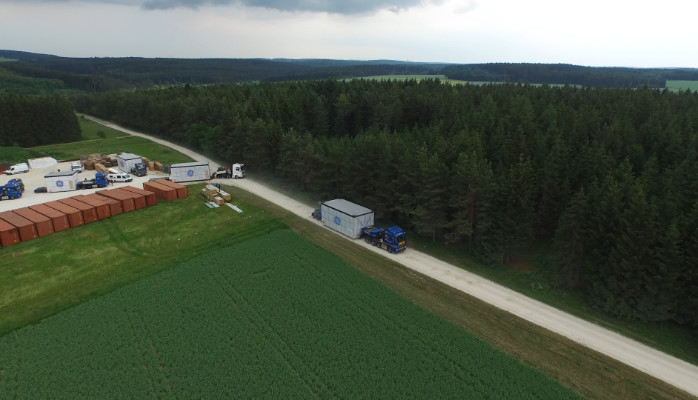
The Top 10 Reasons Transformation is the New Normal for Healthcare – Reason 1
Reason 1: Disruptive biopharma and hi-tech manufacturing are combining to improve access
Too many of us unfortunately know the very personal impact of diseases like cancer and diabetes. We know that incredible medical advances – screening, diagnoses, treatment and therapies – help patients and their doctors fight these diseases.
What may be less well known is how these medicines are produced; the journey from idea to the lab, to production in a factory, and finally to doctors and the patients who need these treatments most.
Take biologics for example. These breakthrough drugs fight the toughest diseases – cancer and diabetes among them – and are rapidly growing in demand. Yet, biologics are complex and often difficult to produce.
China is one of the places where this challenge is acutely felt. In the past year, cancer rates there have exploded with more than 4.3 million people diagnosed. Biologics account for only 4% of the medicines prescribed across the country (for reference, the number is above 20% in the U.S.). There is a massive need for faster, more effective cancer treatments.
We know that if more widely available, biologics could provide significant promise for the Chinese people. The problem is one of production limitations and access.
As a health technology and solutions company that is committed to delivering outcomes with impact, that’s a challenge we’re hungry to take on. An opportunity for our growing $4 billion USD Life Sciences unit, yes, but also to transform healthcare for doctors and patients around the world.
Backed up by the manufacturing expertise of GE, it’s also right in our sweet spot.
Our customer JHL Biotech , a biopharmaceutical manufacturer, has this same mission, and a transformation is underway. With a mix of industrial knowhow, manufacturing technology and biotech expertise from GE, JHL opened the world’s first modular biopharmaceutical manufacturing facility based on single-use technology last week in Wuhan, China.
KUBio, as we call it, is a “factory-in-a-box” – an innovative facility made of 62 pre-fabricated modules built in less than 18 months, ready-made for biologic production. It has everything a traditional, large-scale biopharmaceutical manufacturing facility has – aimed at late stage cancer trials and commercial supply – yet was constructed in half the time. I believe KUBio will very rapidly reshape the biopharmaceutical industry. (See more here: invent.ge/1qaT6Zx )
It’s about to make biologics more accessible for people in China… and beyond.
We’ll be bringing more KUBio manufacturing plants to our customers in locations that need them around the world. These facilities will help improve access to better quality healthcare. This is a revolution for biomanufacturing, but it’s the new normal for healthcare.
I’ve been following the discussions on posts here for some time now – the insights shared are great and I’m committing to joining them. I hope to share more about the people and ideas transforming healthcare today. This was reason 1. More to come.
Supply Chain Senior Executive | Digital Transformation Accelerator | Chief Procurement Officer | Lean & Six-Sigma Value Creator
7yJohn - very well said. Reducing the prolong void in the discovery and development of truly novel biologics with modular pharma production is very needed in Asia.
International Financial Services Executive
7yThanks for publishing this, John. The increase in early diagnosis, treatment opportunities and awareness of the myriad options available to doctors and patients is critical in successfully managing cancer cases globally. I've seen its devastating effects at very close range, and the advances in cancer care, such as KUBio, are appreciated by families like ours who have seen the personal devastation it causes. Thank you for your leadership in this important area.
Head - Consulting & Advisory for North America Aerospace and Defense
7yJohn, this has got amazing potential for cancer trials in not only China, but also countries like India where people living in non-urban areas find it difficult to find timely and affordable cancer care. Today a lot of of this is aided by NGOs. But the % of cancer patients who survive 5 years after diagnosis is very low compared to most countries. So! KUBio has great opportunity to transform this ecosystem. But rather than setting up factory of 62 modules for one KUBio, is it possible to make the trial modules mobile for regional coverage and rest of the units more centrally located. It has the potential to enable 2 benefits: Bring down the average cost of KUBio unit for the service provider, and, share local intelligence faster with care facilities & Pharma companies for active response and active monitoring ! Look forward to reason 2 in the series.